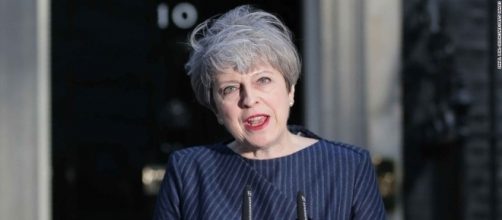The likely coalition between Theresa May's Conservative party and the #DUP has quickly become a matter of great concern to many. Having performed disastrously at the general election, Theresa May quickly did her sums and concluded that the support of the Democratic Unionist Party would allow her to remain in power, and the Democratic Unionist Party seemed to embrace the prospect of being kingmakers within hours.
Suddenly, everyone was interested in finding out more about the #DUP, a party who's renowned for its conservative views on many issues, and at times played a dubious role in northern ireland but is little known in the rest of the UK.
The #DUP's stance against gay marriage and abortion quickly made the headlines and emerged as a cause for concern among some Tory politicians, however, commentators in Northern Ireland, Britain, and the Republic of Ireland quickly warned of the risks a Tory-DUP coalition would pose to the Northern Ireland peace agreement.
Among them, Jonathan Powell, former Chief Of Staff during Tony Blair's reign, who urged Theresa May not to make a deal with the DUP because such an agreement could further jeopardise the re-establishment of the power-sharing executive.
WATCH: Jonathan Powell, former chief British negotiator on Northern Ireland, explains how a Tory/DUP coalition cannot work. pic.twitter.com/qrXL0yTQWs
— EL4C (@EL4JC) June 9, 2017
Jonathan Powell's worries are shared by many, not least of all politicians in Northern Ireland and the Republic.
The negotiations to form a new power-sharing government were due to resume on Monday, however, many fear the DUP may now feel less inclined to engage in negotiations seeing as the party suddenly finds itself at the centre of UK politics.
Arlene Foster - A controversial figure in Northern Ireland
The leader of the DUP, #Arlene Foster quickly emerged, promising to collaborate with the Conservative party in an effort to strengthen Britain.
However, in Northern Ireland earlier this year, many sought her resignation after she was involved in a £400 million grant scheme scandal. The then deputy first minister of Northern Ireland, Martin McGuiness, resigned over Foster's failure to adequately deal with the issues, and the power-sharing executive collapsed.
Efforts to reestablish the Northern Ireland assembly failed to come to a successful conclusion, and talks were suspended in the run-up to the British general election.
During the election campaign, #ArleneFoster was heavily criticised for the #DUP's links to the UDA, a loyalist paramilitary organisation still active today. During the election campaign, the UDA issued a statement urging voters to support the #DUP candidate Emma Little. Only days after the UDA is believed to have shot dead a man in a supermarket car park in front of his 3 year-old son, Arlene Foster met with representatives of the UDA, a move condemned by many.
When quizzed about the #DUP's links to the UDA, Jefferey Donaldson, a well-known #DUP politician, promised that the party would "divorce" itself from any association with this paramilitary group.
What now for the power-sharing executive?
Any kind of deal between the #DUP and the Conservatives will jeopardise negotiations because the British government can no longer be viewed as an impartial broker in negotiations, leaving nationalists led by Sinn Fein in a particularly precarious position. The deadline to reach an agreement on the formation of a new power-sharing government in Northern Ireland is at the end of this month, with many fearing that the DUP's priorities now lie elsewhere.
Reacting to the possibility of a coalition between Theresa May's Conservatives and the #DUP, Sinn Fein tweeted a Channel 4 news item.
Meet the socially conservative Northern Irish MPs that could prop up the Tories pic.twitter.com/2XXO4wQskl
— Channel 4 News (@Channel4News) June 9, 2017
It looks like Theresa May is throwing all caution to the wind, trying to hang on to her reign, regardless of what the effects on the Northern Ireland peace agreement will be.


